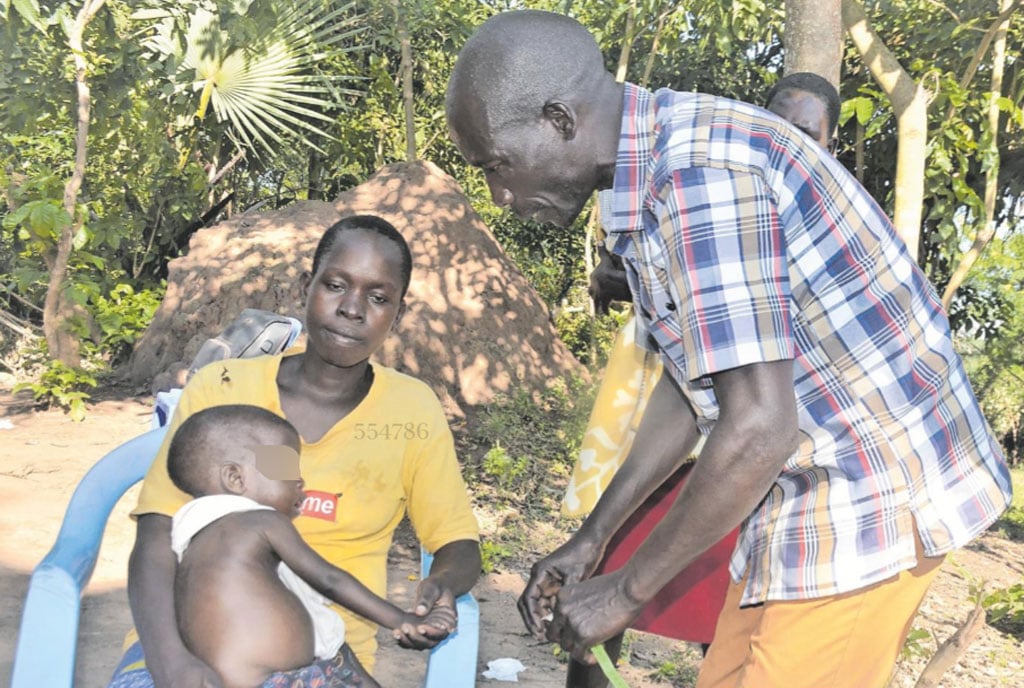
NITA-U executive director Dr Hatwib Mugasa. PHOTO/FILE/COURTESY
Police's Criminal Investigations Directorate (CID) and the State House Anti-Corruption Unit (SHACU) have initiated parallel investigations into alleged procurement irregularities related to the $200 million (approximately Shs728 billion) World Bank-funded Uganda Digital Acceleration Project-Government Network (UDAP-GOVNET).
The project is being implemented by the National Information Technology Authority-Uganda (Nita-U), with oversight of the Ministry of ICT. NITA-U is the statutory body mandated to coordinate government IT services.
On September 23, CID wrote to the NITA-U Executive Director, Dr Hatwib Mugasa, requesting for copies of files relating to implementation of the project, including work plans and budget for the last Financial Year 2023/2024, payment vouchers, procurement and accountability documents, and “any relevant information.”
“The CID in liaison with SHACU is conducting investigations into allegations of irregularities in the procurement by NITA-U,” the letter reads in part.
The investigation, Monitor understands comes against the backdrop of recent revelations that senior NITA-U officials are involved in backdoor bending of Terms of References (ToRs) to favour certain vendors bidding and bypassing the contracts committee and evaluation committee for aspects of the project.
There is also a long list of complaints lodged at the Public Procurement and Disposal of Public Assets Act (PPDA) tribunal by vendors appealing contracts awarded.
In the same vein, sources close to the project told this newspaper of growing discord inside NITA heighted by tightrope pulling among the executive committee, with each of the senior officials pulling in different directions. There are also claims of some officials nudging bidders for prepayments.
This messy state of affairs, sources added, has been flagged by the World Bank, which since 2023 has been complaining to the ministries of Finance and ICT about the slow absorption of 6 percent of the $200m kitty. The project closes in two years.
The UDAP-GOVNET project was approved by the World Bank in June 2021, consisting of a $60 million (Shs218b) grant and a $140 million (about Shs510b) loan.
The project aims to expand access to high-speed internet, improve efficiency of digital government services, and strengthen digital inclusion of refugees and host communities in northeastern and southwestern Uganda.
As a result, sources indicated that several key government agencies, including Uganda Communications Commission (UCC) and National Identification and Registration Authority (NIRA) have taken matters in their own hands by engaging private data/hosting to private vendors. This is because NITA’s central data centre at Statistics House, on Colville Street in Kampala, is always on and off.
Since commencement in May 17, 2023, the UDAP-GOVNET project has been beset by numerous setbacks, which insiders attribute to “implementation incompetence.”
A Ministry of Finance September 2024 audit report of external resources-financed projects detailed the overall project physical performance of the project as “poor and behind schedule” with the obvious “likelihood that several project deliverables will not be achieved by the end of the project unless measures are taken to expedite the processes.”
“The NITA-U, ministries of ICT and Finance should prioritise counterpart funding of the project in the remaining period to achieve the planned value.
And the government should align the financing approval process to the lenders’ approval schedule to mitigate the time overruns,” audit recommended.
In July, Monitor reported a protracted battle following revelations of bending ToRs to favour Chinese company, Huawei, for the tender for extension of fibre optic cable and building the Metropolitan Area Network (MAN), the “heartbeat” of the expanded National Backbone Infrastructure (NBI) and e-Government Infrastructure.
Contractors
Huawei built the fibre optic system to link all government operations on a single network during the initial phases of the NBI/eGI project.
However, the government turned to the Dell system and Juniper firewall, respectively, developed by American companies Dell Inc and Juniper Network, for network security.
Juniper also designed the first MAN Centre housed at Statistics House, on Colville Street in Kampala. The MAN Centre connects computer systems within a wider, metropolitan area.
As such, Huawei undertaking cabling and building the MAN under UDAP-GOVNET project, was flagged by some insiders as injudicious considering that nearly all information of ministries, departments and agencies flows through the portal. However, this resulted in the ouster of several technical officers on the project, which brought procurement for several key components to a standstill.
About the project
UDAP is an extension of the China’s Export-Import (EXIM) Bank-funded National Backbone Infrastructure and e-Government Infrastructure (NBI/EGI), the optical fibre cable linking all government offices and the supply and installation of communication equipment to enable the transmission of voice, data and conferencing services.
Phase One of the project was completed in June 2008 and involved laying of optical fibre cable within Kampala and Entebbe to link 27 MDAs and laying of 168km of fibre linking Kampala to Mukono, Bombo and Jinja.
Phase Two ran from 2009 to 2013 encompassing laying 1,400km fibre and construction of a data centre at Statistics House in Kampala for managing all e-government services on the NBI/eGI.
Phase Three ran from 2016 to 2017 covering 756km of high-speed optical fibre cable from Kampala to western Uganda and the borders with Tanzania and Rwanda, while phase four was funded by the World Bank under the Regional Communications Infrastructure Programme (RCIP) to a tune of $75m (Shs273b) between 2016 to 2022 to extend ICT backbone to the West Nile districts and border points with DR Congo and South Sudan.





